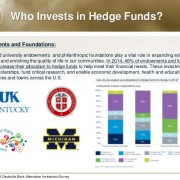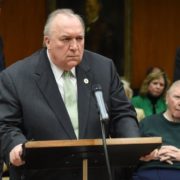“In my view, public research should contribute to the public good.” Written by David Conner, Assoc. Prof., Univ. of Vermont
My working definition of neoliberalism (still a work in progress) is the paradigm in which society believes all functions are best performed and human welfare maximized by the private sector and markets, with little or no private funding or oversight.
I am a professor at a small land-grant university in New England. As such I am evaluated by my performance in teaching, research and outreach. I see both current and potential drawbacks as neoliberalism has taken hold in higher education in these dimensions.
Some of these observations are thought experiments while other I have clearly observed in my time here. Many are posed as questions to ponder. I hope you find them interesting.
Teaching. All else equal, especially in the absence of public funding of education, the most desirable student for the university to admit is one who will pay full tuition: that means an out-of-state student from a wealthy family who does not need financial aid. Perhaps this student displaces others from in-state or less family wealth or, perhaps, even those with greater academic ability.
How does this impact the classroom? Will the classroom be less diverse, will students have fewer and narrower experiences to draw from? I teach many service-learning (S-L) classes. The wealthy out-of-state student will likely have less connection, geographically, demographically and socioeconomically, with the community partners.
Will this diminish the value of the S-L components? I have also observed an uptick in entitlement among many students. One student who did not like how I graded her exam told me this if I did not change her grade: “My dad is a lawyer, I’m going to have him talk to the Dean.”
This attitude is sadly becoming more common. Does this emerge from admitting based on wealth rather than need and ability?
Research: Nearly all faculty I know bemoan increased difficulty in obtaining grant funding, as public funding of research has decreased over time. I regularly assign Glenna et. al, Academic Capitalism paper [1] to my graduate students as an opportunity to discuss the priorities of public university research.
In my view, public research should contribute to the public good: we should prioritize areas that the private sector will not and leave research and development (R&D) of private goods for companies. True public goods, that is, non-rival and non-excludable and therefore non-marketable, are especially important. Sadly, as Glenna et. al discuss, these lines are blurred and public universities increasingly serve as the R&D arms of industry.
Who wins and who loses in this case? Who funds important research that benefits the public, but has no clear market payoff? Who funds basic research as building blocks of future research?
Outreach: The concerns in outreach are similar to research. What should drive the agenda–public good or industry? In the food and agricultural sector, commodity groups hold huge sway over the research and outreach agenda.
Two anecdotes from my previous position highlight concerns. When a colleague secured a large grant to create a research and outreach program on pasture-based dairy production, the state’s milk commodity group urged the college dean to refuse the money. Similarly, during a meeting to discuss research and outreach opportunities for organic agriculture, many extension educators stated that they could only work on organic in secret, if at all, because of adverse pressure from conventional agriculture interests.
Much research has focused on the economic, social, environmental and human health benefits of pasture-based and organic agriculture, yet when money talks, these models are often pursued on the fringes, if at all.
How would higher education be different if students were admitted and research and outreach were funded according to need and ability to contribute to knowledge and society? How could dependable public investment in higher education change the landscape?
I hope this blog post stimulates critical thinking and interest.
Thank you for reading.
_______________________
[1] Glenna, L. L., Lacy, W. B., Welsh, R. and Biscotti, D. (2007), UNIVERSITY ADMINISTRATORS, AGRICULTURAL BIOTECHNOLOGY, AND ACADEMIC CAPITALISM: Defining the Public Good to Promote University–Industry Relationships. Sociological Quarterly, 48: 141–163. doi:10.1111/j.1533-8525.2007.00074.x






